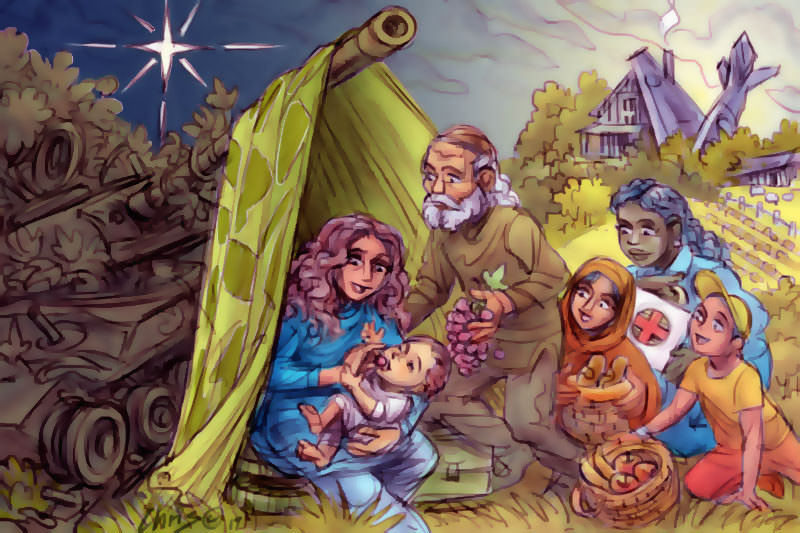Christmas Day is a day of contrasts. For many people it is a time of celebration: of family, of children, of good food and drink, of leisure, of freedom from work, of good food and drink, and of generosity to people who are doing it hard. For many others it is a day of pain and isolation: from a dysfunctional family, from poverty, from homelessness, from imprisonment, from forced flight from a homeland, from family deaths in distant wars.

For all people, this Christmas comes in the shadow of large anxieties. It tracks the war and the deaths of so many children in Israel, Gaza and in other wars, and much homelessness and financial struggle in Australia. Hanging over these sources of despondency, too, is the ghost of climate change.
The stories of the first Christmas suggest that anxiety and disturbance are its natural background. It comes naturally as the unexpected warmth of sunshine on a cold and cloudy day. The first Christmas took place in a Judaea that had lost its independence and was effectively under Roman rule. God’s promises to be with the people had seemed to come to nothing. People who had led rebellions in the name of God had been ruthlessly suppressed. Hope was in short supply.
To that world Christmas came as unexpectedly and as unnoticed as a candle lit in a desert. In the Christmas stories of Luke and Matthew the circumstances of Jesus’ birth and the lives of little people are controlled by the whim of alien power. In Luke’s Gospel the census called by the Roman Emperor to tax the population compels Joseph and a heavily pregnant Mary to walk to Bethlehem. There, because of the crowd of travellers in the inns, Mary can find no private space to give birth. As a result, the birth of Jesus who fulfills God’s promises to the Jewish people takes place in a stable, disclosed only to disreputable shepherds and, in Matthew’s Gospel, to foreign visitors.
In Matthew’s Gospel, when Herod, the puppet King of Judaea, hears of Jesus spoken of as a future king, he decides to kill him. Joseph and Mary must flee for their lives from Judaea to Egypt, as refugees still try to do.
And yet both in Bethlehem and in Egypt hope steals in imperceptibly as Jesus grows. Mary and Joseph treasure the promises that he will be at the centre of a world-changing future. His survival and the signs associated with his birth strengthen their hope. They celebrate his birth. They are also prepared to find the presence of God in God’s apparent absence and the victory of God in Jesus’ apparent annihilation. Their hope is thoroughly tested by Jesus’ seeming insignificance and by defeat.
Underlying the celebration, the gathering of families, the gratitude for children and the gift-giving which animate a secular Christmas is the hope that, despite appearances, life and goodness will triumph. It hopes that the deaths of so many children in Gaza, the viciousness of wars, and selfishness in the face of climate change, will not control the future. The first Christmas offers us a promise and asks a question of us. A promise that life will come through a birth and a death. And a question, whether we shall hang in together to give life a chance.
Whether we are Christians or not, Christmas is a time to ask ourselves what promise gives us life, and what hanging in together might ask of us.
Andrew Hamilton is consulting editor of Eureka Street, and writer at Jesuit Social Services.
Main image: Chris Johnston illustration.